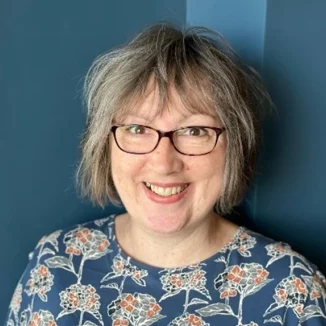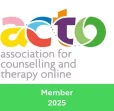
Silver Lantern Counselling
A Light in the Darkness
Welcome and thank you for visiting my website.
Life can sometimes feel, or become, darker or perhaps harder to navigate. Ways that worked to help you through life suddenly seem wrong. Perhaps there has been a loss of a loved one, a job or something that was important to you or perhaps a dream not met. Maybe you cannot pinpoint why or how life has become more of a struggle.
This is where counselling can help by providing a space for you to explore your story, your experiences that have brought you to this point.
About Me
I am a person-centred counsellor. During the initial training course to become a counsellor, I was introduced to the different ways or theoretical approaches that exist under the umbrella term of counselling. I was drawn to the person-centred way of being, founded by Carl Rogers and have a foundation degree in counselling which has provided me with a person-centred framework.
I am a member of the British Association for Counselling and Psychotherapy (BACP) and abide by their ethical framework. I am also a member of Association for Counselling and Therapy Online (ACTO).
I have a special interest in working with loss and grief, whether from a loss of a loved one, living with chronic pain or illness or from being childless not by choice for example. How do we make sense of ourselves when our life is so different from those around us?

Julia Gibson


I have undertaken extra training to become an Adoption Support Counsellor and am able to provide support to adults wishing to explore their direct experience of adoption and fostering whether as an adoptee, an adopter, a birth family member or experience of fostering or SGO and kinship care.
I am committed to continuing my professional development and have attended various courses including:
- Certificate in Adoption Support Counselling (The Albany Centre and Barnardo’s)
- Counselling for Sight Loss (RNIB)
- Domestic Violence & Sight Loss (RNIB)
- Pregnancy and Infant Loss Practitioner training (Foundation for Infant Loss)
- Rainbow Baby specialist (Foundation for Infant Loss)
- Infertility (Foundation for Infant Loss)
- Counselling People with Multiple Sclerosis (MS-UK)
- An introduction to Compassion Focused Therapy (Compassionate Mind Foundation)
- Certificate in Online and Telephone Counselling (Counselling tutor)
- Various training courses around trauma, grief and loss and creative working practices.
What Do I Offer?
Someone to listen to you and to witness your story, your experiences. Someone to learn how it feels to be you.
Through feeling heard and understood, new understandings, new awareness and/or new connections emerge. As if we are looking at something at a different angle and this often feels like a shift inside.
I believe that we all know deep down what we need and how to help ourselves, but this often gets lost under all the demands of life. We need the ‘right’ environment for us in order to access our own ways of healing and being in the world.
These words of Carl Rogers, the founder of the person centred approach, resonate with me both personally and professionally, "When the other person is hurting, confused, troubled, anxious, alienated, terrified, or when he or she is doubtful of self-worth, uncertain as to identity, then understanding is called for. The gentle and sensitive companionship of an empathic stance provides illumination and healing. In such situations, deep understanding is, I believe, the most precious gift one can give another."
What issues can counselling help with?
People come to me for help a wide range of issues. Here are a few of the more common difficulties that can be supported through counselling:
Feelings of stress or anxiety
Relationship problems
Grief, loss or bereavement
Infant Loss
Trauma and post-traumatic stress
Abuse
Depression
Visual Impairment
Problems with confidence or self-esteem
Anger management
Issues relating to sexuality
Difficulties at work or in retirement
Chronic health conditions
Being childless not by choice
The Process
First Contact
On receiving your email or telephone call/text, I will contact you to arrange a free no-obligation introductory call of between 15 and 30 minutes. This can be either a telephone call or a video call. (I use Zoom or Doxy for video calls.) This offers an initial conversation about how I may be able to help and also for you to start to get a sense if I am someone you feel you can work with.
If you wish to proceed, we will arrange the first session. If we are working remotely, I will email you various documents including the agreement before the first session.
First Session
This is for both of us to start to get a sense of the other. There will be space for you to begin to explore what has brought you to counselling, what you are hoping to get from it and how we might work together.
Towards the end of this session there will be space for you to decide if you would like to continue to work together. If so, we will go through the agreement and other documents. We can also discuss the number of sessions we may work together for, this could be from a few sessions to longer-term work.
Further Sessions
We will meet using the frequency we have decided upon during the first session. Often this is the same time on the same day on a weekly basis.
I work in an open-ended way which means that I do not have a minimum or maximum number of sessions I offer. We can set a specific number of sessions or have more of a rough guide which can be changed at any point.
We will have regular reviews of our work together and there will be space for you to decide to continue, end or pause.
Ending
An ending offers us a way to create a kind of stepping stone for the future. I believe it’s an important part of the process and something we would work towards together whilst also recognising that is not possible at times.
A final session often includes us reflecting on our time together. We may consider such questions as what have you learnt about yourself? What has helped? What has not helped? What has changed?
My Location and Availability
I am a counsellor based in Craven Arms, and provide online and telephone counselling services across the UK, including Craven Arms, Shropshire.
I also provide in-person counselling within Craven Arms and Ludlow in Shropshire. The venues I use are fully accessible with free parking and accessible toilets. I can also provide in person sessions in Knighton, Powys, in a venue that is fully accessible.
Remote working offers a way of working together when we are not able to meet in person for whatever reason. It also enables me to provide sessions outside of normal working hours so I’m able to offer evening and weekend sessions.
Fees
I provide counselling sessions for adults on an individual basis using either video conferencing software, the telephone or in-person. The sessions last for 50 minutes and the fee is £50.00 per session. Please note the first session will be for between 60 and 75 minutes for the same sessional fee.
Payment is made via bank transfer, and I will provide the bank details before the first session. Payment for the sessions will need to be made on the day of the session unless other arrangements have been agreed with me. If you need to cancel or rearrange the session, the full session fee will only be payable if you do not provide 24 hours’ notice.

Get in touch
Feel free to contact me if you have any questions about how counselling works, or to arrange a no-obligation introductory telephone call or video call. This enables us to explore the reasons you are looking into counselling, what you are hoping to get from it and how I may be able to help.
You can also call me on 07785473785 if you would prefer to speak to me first. I am happy to discuss any queries or questions you may have prior to arranging an initial appointment.
All enquires are usually answered within 24 hours, and all contact is strictly confidential and uses secure telephone and email services.
Frequently asked questions
Both terms are used interchangeably by many people and are used to describe talking therapy in general. The term used by a practitioner generally refers to the core training they undertook to become a counsellor, psychotherapist or clinical psychologist, for example.
There are many different ways of being with clients and this can be confusing when trying to find someone to help. The BACP website has some information about some of the different types of therapy: https://www.bacp.co.uk/about-therapy/types-of-therapy/
I aim to see clients within two weeks from the initial contact. During the introductory conversation, we would discuss possible dates and times for the first session considering your availability, my availability and room availability, where applicable.
There is not a definite answer to this. The length of time is dependant on many factors including your availability and varies between person to person. I offer an open-ended service which means that there is no minimum or maximum number of sessions I am able to offer.
Some people prefer to have a set number of sessions to work together for, others prefer to keep it more open-ended. Everyone is different and this is one of the areas we can discuss in the introductory conversation, the first session and also future sessions. There will be space given for regular reviews of our work together.
We will discuss this during the introductory conversation and/or the first session but generally we would meet at the same time and day each week.
I work with people over 18 years of age on an individual basis who are struggling with different aspects of their lives.
Clients I have worked with include those with previous counselling or therapy experience, those for whom this is their first experience and those who have had poor experiences of therapy in the past.
I have experience of working in a variety of counselling providers before setting up in private practice where I worked with a wide variety of clients from different backgrounds, with different life experiences and aged from 18 years of age.
Online counselling is a term used where the session takes place remotely and generally uses video conferencing software or the telephone. It has been available for many years but saw an increase as a response to the COVID pandemic.
It provides a way for counselling to be available for those who are unable to meet in-person and also offers clients a way to work with a counsellor or therapist from a different area.
I use Zoom or Doxy for online sessions and send a link to the virtual meeting room by email. This is usually the day before the session is due. I will discuss this with you during the introductory call.

